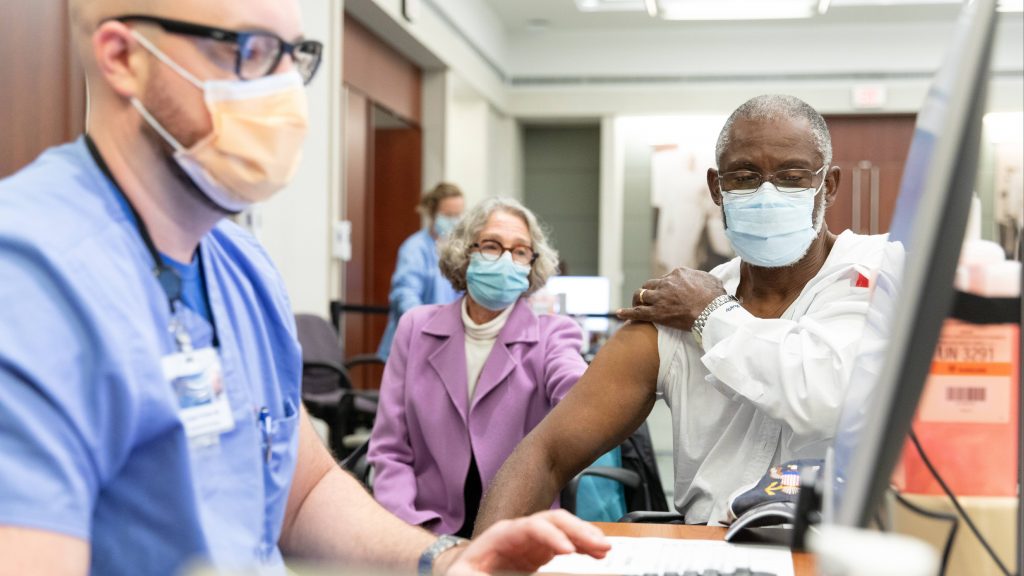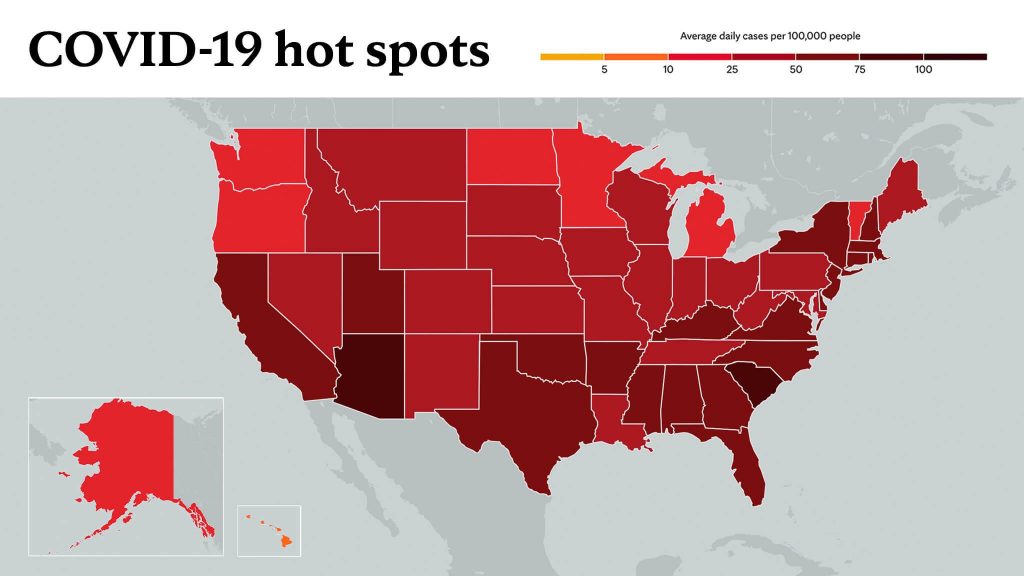
As more COVID-19 vaccines become available in the U.S., Mayo Clinic has begun community vaccinations for older adults. Dr. Abinash Virk, an infectious diseases expert, explains why it's especially important that adults 80 and older are vaccinated for COVID-19.
Watch: Dr. Abinash Virk discusses the importance of older adults getting vaccinated for COVID-19.
Journalists: Broadcast-quality sound bites with Dr. Virk are available in the downloads. Please courtesy, "Abinash Virk, M.D./Infectious Diseases/Mayo Clinic."
"The older a person gets, the higher the risk. This is likely because patients lose immunity as they get older. The older they are, the more immune dysfunction they have. That causes them to have a higher risk of complications from COVID-19," says Dr. Virk.
Both of the messenger RNA COVID-19 vaccines authorized for use in the U.S. ― Pfizer/BioNTech and Moderna ― have been shown in studies to be about 94% to 95% effective in preventing COVID-19 infection in all patients. But are they just as safe and effective for those 80 and older?
"In both the Pfizer/BioNTech and Moderna vaccine studies, they had a large number of older patients. This was based on FDA (Food and Drug Administration) guidance to these companies to make sure that they included people who were older because we know that the older patients are at higher risk of severe COVID-19," explains Dr. Virk.
"We have some evidence to show that it's similarly effective in the older population. The immune response may not be as good as the younger, less than 65 age group, but did not seem to be that significantly different."
Of interest, Dr. Virk says older patients in the studies had fewer side effects from COVID-19 vaccines than younger patients.
While getting the vaccine into the arms of as many older adults as possible is important, Dr. Virk says everybody needs to continue taking precautions after being vaccinated for COVID-19, including:
- Wearing a mask.
- Practicing social distancing.
- Washing hands frequently.
"We need at least 70% to 80% of the population to be protected against COVID-19, whether it's through natural infection or it's through vaccination. Until we have that amount of the population protected, the virus can still continue to transmit and continue to grow within our community," says Dr. Virk.
_____________________________________
For the safety of its patients, staff and visitors, Mayo Clinic has strict masking policies in place. Anyone shown without a mask was either recorded prior to COVID-19 or recorded in a nonpatient care area where social distancing and other safety protocols were followed.
Information in this post was accurate at the time of its posting. Due to the fluid nature of the COVID-19 pandemic, scientific understanding, along with guidelines and recommendations, may have changed since the original publication date.
For more information and all your COVID-19 coverage, go to the Mayo Clinic News Network and mayoclinic.org.
Learn more about: Tracking COVID-19 and COVID-19 trends








